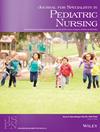“Like Any Other Camp”: Experiences and lessons learned from an integrated day camp for children with heart disease
Abstract
Purpose
Summer camps for children living with heart disease can have a profound impact on well-being. However, specialized camps often require extensive resources (i.e., 24-h medical staff supervision) and may be located in far remote settings. Integrating children with heart disease into mainstream day camps may address these barriers. The purpose of this study is to describe the experience of attending an integrated day camp from the perspectives of children with heart disease and their parents.
Design and Methods
This study used a qualitative descriptive design. Among 25 eligible families, 9 participated in interviews which were held 3 months to 2 years after attending an integrated camp (mean age of children at camp was 7.3 ± 2.25 years). Interviews were audio-recorded and transcribed verbatim for an inductive thematic analysis.
Results
Many parents chose the integrated camp as their child's first summer camp experience, citing trust in the local division of Cardiology's approval of the camp activities as an important reason for enrolling. All participants agreed the integrated camp was a valued opportunity which should continue, although not all described positive camp experiences. Participants' descriptions of the integrated camp were organized into two main themes: 1) overall expectations of the camp and 2) important opportunities afforded by the camp experience. Partaking in a typical camp experience, connecting to local children with heart disease, adequate safety precautions and activity adaptations were specific expectations held by participants. Important opportunities included greater independence and confidence, navigating disclosure of their diagnosis to peers on their own terms, and more diverse social connections. Improving communication with parents to ensure expectations match camp objectives would have enhanced the experience.
Practice Implications
Practitioners looking for an alternative to specialized camps for their patients with heart disease may use these results to guide the design and promotion of an integrated camp.

 求助内容:
求助内容: 应助结果提醒方式:
应助结果提醒方式:


